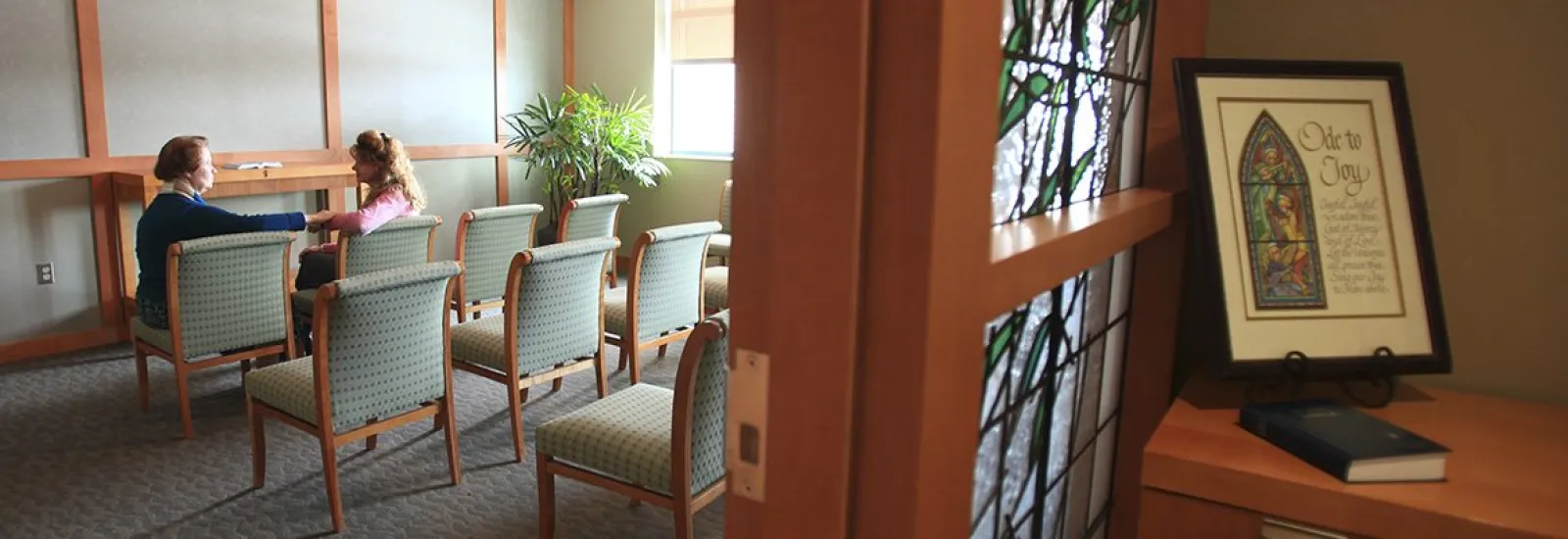
Postpartum
This group seeks to provide support and information about perinatal mood and anxiety disorders. It is designed to help new moms with the challenges that often come after having a baby.
The group is free to attend. It is facilitated by Natalie Meyer, BSN, RN and April Coffin, LCSW; and is certified thru Postpartum Support International (PSI).
We focus on valuing, honoring and supporting mothers, not only in words, but in action. PSI is a worldwide non-profit organization committed to helping women and families suffering from perinatal mood and anxiety disorders and ensuring that compassionate and quality care is available to all families.
Please verify dates and location by referencing the Events Calendar.
Perinatal mood and anxiety disorders are often overlooked and left untreated due to the fear instilled by stereotypes and lack of support. Parents do not have to suffer alone. We are here to provide support, comfort, and shatter the silence. We want to help these families combat fear and the stereotypes that surround the many different postpartum mood disorders.
Remember - You are not alone. You are not to blame. With help, you will be well.
New moms are often challenged by the impact of a baby, including by postpartum depression, fatigue, anxiety, OCD and many other emotions and feelings. It's helpful for moms to be able to meet and share their experiences with others.
What are the symptoms?
Parents of every culture, age, income level and race can develop Perinatal Mood and Anxiety Disorders. Symptoms can appear any time during pregnancy and the first year after childbirth. There are effective and well-researched treatment options to help you recover. Although the term "postpartum depression" is often used, there are actually several overlapping instances.
-
Pregnancy or Postpartum Depression
might include feelings of anger, irritability, guilt, lack of interest in the baby, changes in eating and sleeping, trouble concentrating, thoughts of hopelessness and sometimes thoughts of harming the baby or yourself.
-
Pregnancy or Postpartum Anxiety might
include extreme worries and fears, including the health and safety of the baby. Some women have panic attacks and might feel shortness of breath, chest pain, dizziness, feeling of losing control, numbness and tingling.
-
Pregnancy or Postpartum Obsessive-Compulsive Disorder
might include repetitive, upsetting and unwanted thoughts or mental images, and sometimes the need to do certain things over and over to reduce the anxiety caused by those thoughts. These moms find these thoughts very scary and unusual, and are very unlikely to ever act on them.
-
Postpartum Stress Disorder
is often caused by a traumatic or frightening childbirth. Symptoms might include flashbacks of the trauma with feelings of anxiety and the need to avoid things related to that event.
-
Postpartum Psychosis
might include seeing or hearing voices or images others cannot, feeling energetic and unable to sleep, believing things that are not true and distrusting those around you. This rare illness can be dangerous to it is important to seek help immediately.
What can I do?
Being a good parent includes taking care of yourself. If you take care of yourself, you will be able to take better care of your baby and your family.
- Talk to a counselor or health care provider who has training in perinatal mood and anxiety problems.
- Learn as much as you can about pregnancy and postpartum depression and anxiety.
- Get support from family and friends. Ask for help when you need it.
- Keep active - take walks and stretch.
- Get enough rest and time for yourself.
- Eat a healthy diet.
- Don't give up! It may take one more try to get the right help you need.
How are you feeling now?
While many women experience some mild mood change or "the blues" during or after the birth of a child, 1 in 7 women experience more significant symptoms of depression or anxiety. 1 in 10 dads become depressed during the first year.
Parents:
- Are you feeling sad or depressed?
- Is it difficult for you to enjoy yourself?
- Do you feel more irritable or tense?
- Do you feel anxious or panicky?
- Are you having difficulty bonding with your baby?
- Do you feel as if you are "out of control" or "going crazy?"
- Are you worried that you might hurt your baby or yourself?
Families:
- Do you worry that something is wrong but don't know how to help?
- Do you think that your partner or spouse is having trouble coping?
- Are you worried that it may never get better?
Any parent can suffer from postpartum moods or anxiety disorders. However, with informed care you can prevent a worsening of symptoms and can fully recover. It is essential to recognize symptoms and reach out as soon as possible so that you can get the help you need and deserve.
Resources
Family Birthing Center:
(765) 983-3020
PSI Warmline
1(800) 944-4773
postpartum.net

